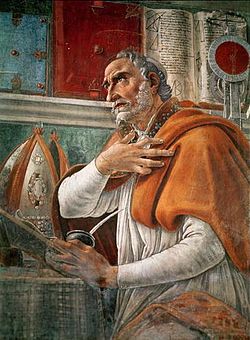
This well-known phrase of Augustine (354-430), Serpentis sapientia decepti sumus, Dei stultitia liberamur (“We were ensnared by the wisdom of the serpent: we are set free by the foolishness of God”) has for some time been a favourite of mine. He stated this in the context of Christ’s Incarnation and death, which was “unto the Jews a stumblingblock, and unto the Greeks foolishness. But unto them which are called, both Jews and Greeks, Christ the power of God, and the wisdom of God” (1 Cor. 1:23). Here it is in a broader context:
“…He came to a place where He had always been, seeing that ‘He was in the world, and the world was made by Him.’ But, because men, who in their eagerness to enjoy the creature instead of the Creator had grown into the likeness of this world, and are therefore most appropriately named ‘the world,’ did not recognize Him, therefore the evangelist says, ‘and the world knew Him not.’ Thus, in the wisdom of God, the world by wisdom knew not God. Why then did He come, seeing that He was already here, except that it pleased God through the foolishness of preaching to save them that believe?”
“In what way did He come but this, ‘The Word was made flesh, and dwelt among us?’ Just as when we speak, in order that what we leave in our minds may enter through the ear into the mind of the hearer, the word which we have in our hearts becomes an outward sound and is called speech; and yet our thought does not lose itself in the sound, but remains complete in itself, and takes the form of speech without being modified in its own nature by the change: so the Divine Word, though suffering no change of nature, yet became flesh, that He might dwell among us.”
For the rest, see:
http://deovivendiperchristum.wordpress.com/2013/11/07/augustine-354-430-we-were-ensnared-by-the-wisdom-of-the-serpent-we-are-set-free-by-the-foolishness-of-god/comment-page-1/#comment-444
No comments:
Post a Comment